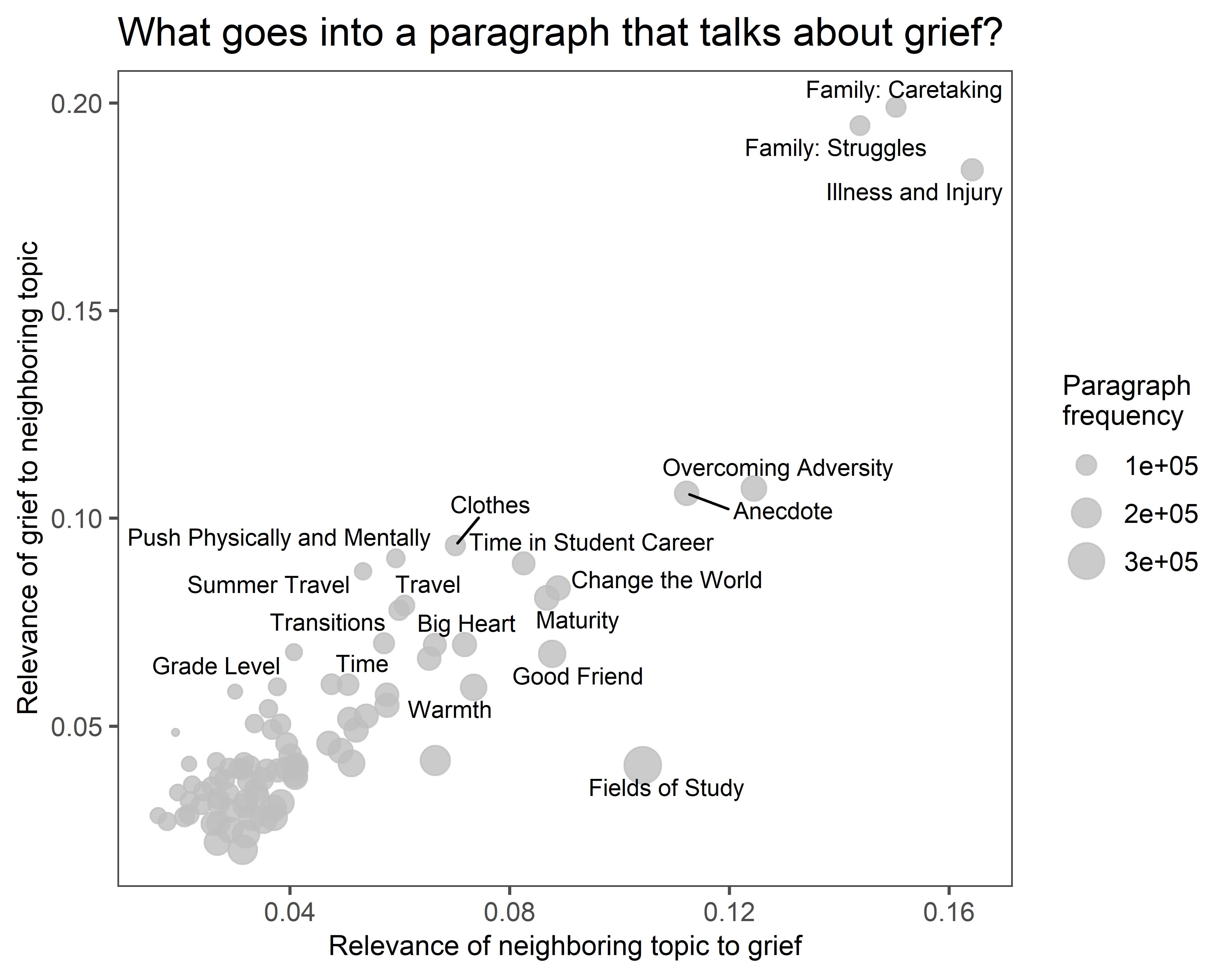
Our study provides a survey of the various framing devices that counselors use to share students' adversities in their recommendation letters. Admission officers use contextual data about students' background, personal qualities, and interests to inform their assessment of applicants' achievement and potential (Lucido, 2014). Research has shown that supplying admission officers with robust contextual data can produce more equitable admission outcomes (Bastedo & Bowman, 2017). Counselor recommendation letters are a key source of this contextual information, and yet we know very little about the content and style of these letters This lack of basic descriptive evidence extend to the more specific issue of how counselors report on students' adverse experiences. We analyzed ~1.5M counselor recommendation letters from the admission seasons between 2017 and 2020 with a suite of natural language processing tools and found that counselors use a relatively coherent vocabulary to report adverse experiences related to anxiety, depression, diabetes, suicide, cancer, and ADHD. Further, our sentence-level analyses showed that adverse childhood experiences are variously framed within narratives of hardship, overcoming, advocacy, and academic interest. Variations on the hardship frame included narratives centered on the student, their peer group, and their nuclear and extended family.
About the Presenters
Sebastian Munoz-Najar Galvez is the Bluhm Family Assistant Professor of Data Science and Education at the Harvard Graduate School of Education. He is a sociologist of science who uses computational linguistics and network analysis to study the ebb and flow of research agenda. He has recently turned toward the study of adolescent experience. Sebastian's work has been published in the American Sociological Review, the Proceedings of the National Academy of Science, and American Educational Research Journal.
About the Harvard Discovery Series
Formerly known as The Digital Futures Discovery Series, the Harvard Discovery Series is a collaboration between Cabot Science Library and the Harvard University Digital Scholarship Group (DSSG). This event series brings scholars on the frontiers of digital knowledge-making to a Harvard audience in an intimate and interactive setting.

